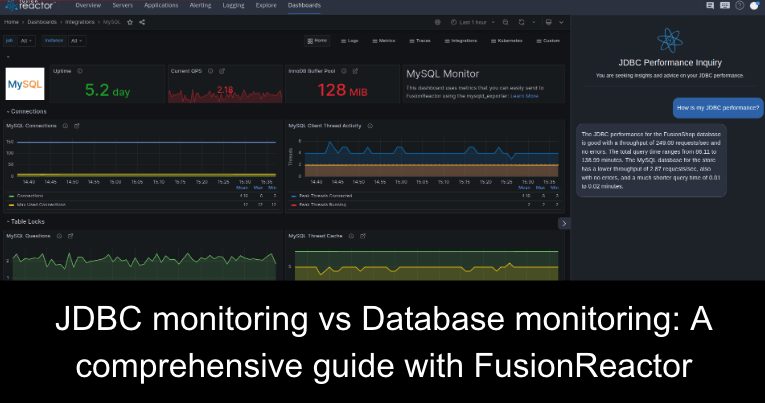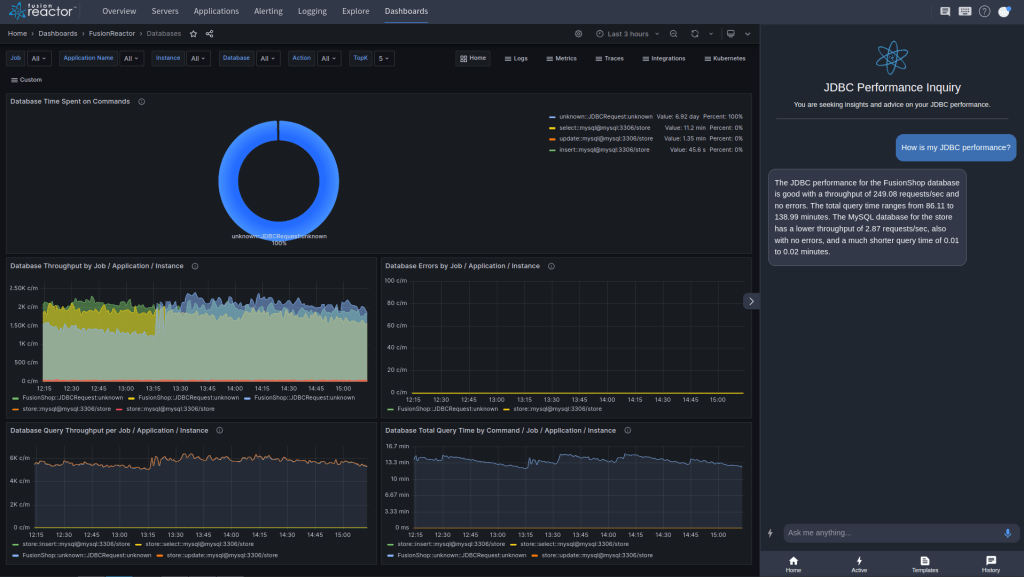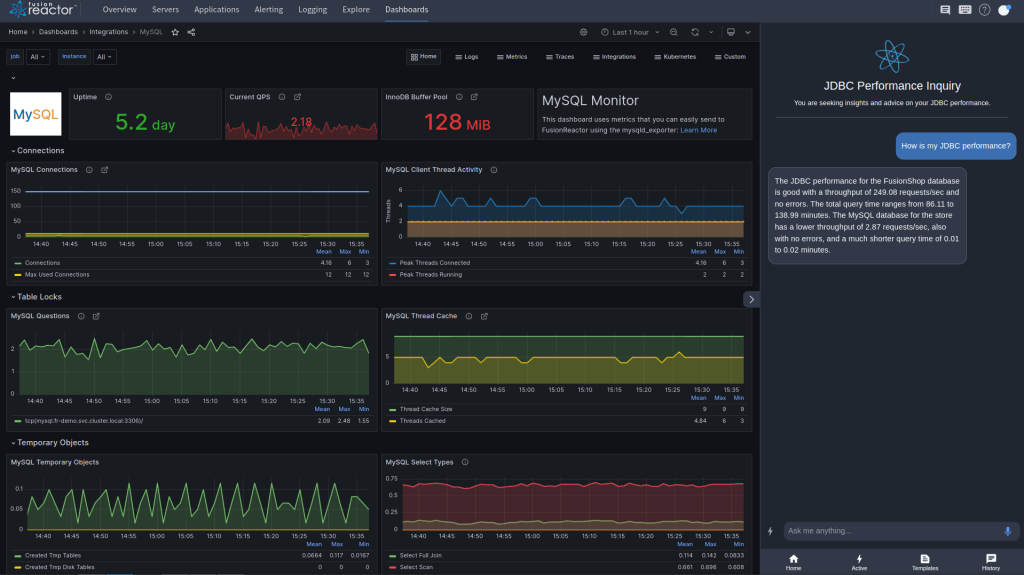JDBC monitoring vs Database monitoring
A comprehensive guide with FusionReactor
In today’s increasingly interconnected world, the database forms the backbone of most applications and services. Therefore, monitoring your database to ensure it performs optimally is not a luxury but a necessity. Two commonly used methods for this are JDBC monitoring and Database monitoring. This article will dissect the pros and cons of each and introduce FusionReactor’s Observability Agent, a comprehensive solution that bridges the gap between the two approaches.
What is JDBC monitoring?
JDBC (Java Database Connectivity) monitoring is a feature in FusionReactor that oversees the connections between Java applications and databases. It offers insights into SQL query performance, connection pool usage, transaction rates, and other metrics specific to Java database interactions.
Pros
- Application-centric: Focuses on how the application communicates with the database.
- Query-level insight: This enables tracking slow queries, errors, and timeouts.
- Easy to set up: Usually straightforward if you’re already using Java-based applications.
Cons
- Limited scope: Only monitors Java-database interactions.
- May miss system-wide issues: Limited to detecting issues directly affecting the application’s performance.
Pros
- Holistic view: Provides a complete picture of database performance.
- Platform agnostic: Works regardless of the programming languages or platforms interacting with the database.
- System-wide insight: Can identify bottlenecks, anomalies, and security vulnerabilities.
Cons
- Complex setup: It requires specialized tools and expertise.
- Resource intensive: This may consume more system resources.
FusionReactor Observability Platform: the comprehensive database monitoring solution
Bridging the gap between JDBC and Database monitoring is FusionReactor’s Observability solution. This powerful tool offers full database monitoring capabilities, making it an ideal solution for organizations looking for a comprehensive approach to database health.
Integrated view
FusionReactor integrates with GenAI and OpenTelemetry, offering a unified look at your application and database performance, making pinpointing issues and optimizing performance easier.
Real-time metrics
FusionReactor delivers real-time metrics and historical data, so you can identify bottlenecks, optimize queries, and forecast potential problems before they escalate.
Customizable alerts
With FusionReactor, you can set up customizable alerts for specific performance metrics or anomalies, allowing for proactive problem-solving.
Ease of use
Robust yet simple solution for comprehensive database monitoring
The platform offers a user-friendly interface and easy setup, making it a powerful yet simple solution for extended monitoring.
- Full-spectrum monitoring: Combines JDBC and Database monitoring.
- Platform agnostic: Works across different database systems.
- Integrated observability: Seamless integration with existing observability platforms like OpenTelemetry.
Why is database monitoring necessary?
Ensure high availability
Database monitoring can help you avoid disastrous downtime by alerting you to issues before they become critical.
Performance tuning
Both real-time and historical data can guide optimizations, helping to eliminate bottlenecks and improve query performance.
Security
Monitoring can also serve as an additional layer of security, alerting administrators to suspicious activities.
Cost management
Understanding resource usage can lead to more cost-effective management of database resources.
Conclusion – JDBC monitoring vs Database monitoring
While JDBC monitoring provides valuable application-specific insights and is excellent for troubleshooting, Database monitoring offers a more comprehensive understanding of your database’s overall health. FusionReactor’s Observability Agent blends both benefits, providing a robust, unified solution for monitoring your database infrastructure. Its advanced features, ease of use, and customizable alerts make it a must-have for any organization serious about database performance, security, and reliability.












